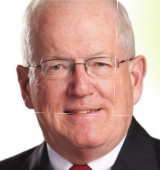It’s time to really commit to change regarding race relations and justice
Not only are these unique times because of the Covid-19 pandemic, but the killing of George Floyd and other African Americans by police in recent months, and the demonstrations that followed, have challenged basic assumptions and long-held traditions, and I hope made all thinking Americans consider carefully what we know, or think we know.
In my case, and those with whom I have discussed the pandemic and the reaction to it, a number of things stand out.
1. Middle-class Americans have been inconvenienced, and much of our daily routine changed. What I had not considered as carefully is the number of people who live paycheck-to-paycheck, and when their hourly jobs vanish, are in danger of being homeless almost immediately.
2. Healthcare is not available to many citizens for various reasons, economic and otherwise. A worldwide health crisis brings that fact up clearly and convincingly.
3. Reacting to a health crisis should be done on the basis of science and facts, and not ideology or philosophy.
4. The ability of leaders to lead and be flexible in reacting to changing facts and science is critical to the public response to a crisis.
5. No matter how smart a reaction closing businesses, staying at home and avoiding human contact may be, it is impossible to do it forever and sustain an economy or a society.
6. Scientists and public health and medical providers learn quickly and are remarkable in their ability to develop treatments for illness when faced with a major crisis. One hospital CEO in New Hampshire recently reported that when the pandemic started, patients being admitted to hospital had about a fiftyfifty chance of survival. Today, it is about ninety-ten, due to what healthcare providers have learned about treating those with the illness.
Obviously, there are scores of other observations that can be made, but it is interesting that some of the above are consistent, and some are slightly contradictory. The killings and demonstrations that followed are another matter.
Writing in this publication’s last issue, Dan Weeks, one of New Hampshire’s most attractive young leaders, challenged those of us who assume we are nonprejudiced and progressive on race relations to seriously consider what being Black in America means and test that against our beliefs.
His was a strong statement based on personal experience by a white New Hampshire native with mixed-race children.
The call for tearing down statues, renaming institutions and buildings, and “defunding” police departments, which followed the killings, are indications of a need to eradicate the ingrained and institutionalized racism of America. It hurts me to write those words. As the calls came, I thought about my experience, as I hope all citizens think about theirs.
During my life, I can remember driving to Virginia for Thanksgiving with my grandparents, who lived in Richmond, Va., and going past “Blue Bird Motel” signs in Maryland, where, my father told me, the “Negroes” could stay.
When we got to Richmond, my grandparents would take us to their church, either on or near Monument Avenue, and my grandmother would tell me about the “great men” whose statues were there. Great leaders of the “war for Southern succession” she called them. That confused me, since I had been taught it was the Civil War, and we (the North) won. She didn’t like that.
No Black people attended her church, but none attended the one my family went to hundreds of miles north of Richmond, either. It turns out, upon reflection, that even if the monuments had been erected for a sound reason (they were not), one person’s monument to history is another’s reminder of subjugation. Too many names and symbols provide too much hate and evidence of institutionalized racism.
The point of all this, of course, is that what is part of us for our whole lives is sometimes hard to watch change. However, if we are going to achieve the promise of America, when we emerge from this pandemic, we better learn the lessons of the pandemic, and, one can hope, really commit to change regarding race relations and other justice matters.
Brad Cook is a Manchester attorney. The views expressed in this column are his own. He can be reached at bradfordcook01@gmail.com.